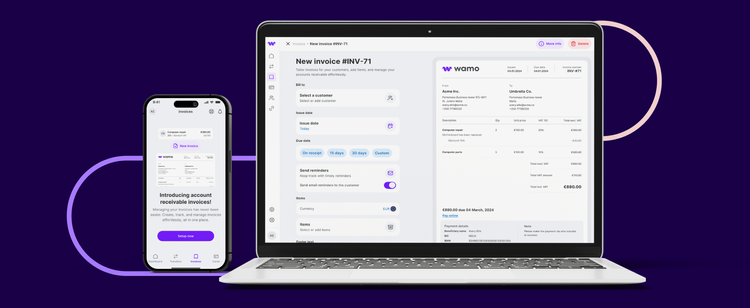As a small business owner, one of the best ways to grow your wealth is to make investments and diversify your holdings.
Okay, we admit it, while investments have a lot to offer, it can also be a big decision since you will be putting your money on the line. And so, it's important to conduct extensive research and evaluate potential investments before you hit the ground running. This means, that you need to keep a few factors in mind like understanding financial statements, evaluating management and leadership and completing thorough market research. By following these steps, you have higher chances of lucrative returns.
But, you must be wondering - Is there a process you need to follow or what decisions you need to take before making the investments? Well, we are going to talk about all those aspects of investing in a company today.
By taking these steps, you can increase your chances of making a sound investment decision and potentially reap the rewards in the long run.
What is corporate investing?
Typically, when you invest in a company while running your own company is called corporate investing.
This happens when a company uses their cash reserves to invest in other companies or assets. When companies invest in other companies, the goal is to make a profit on their spare money or to strategically invest in other companies that can offer them an edge over their rivals. Some known examples of this are direct equity investments, venture capital investments, mergers and acquisitions and even real estate. Companies can even invest in start-ups if they belong to a similar industry or the startups are in complementary industries so that they can get their hands on new tech or markets.
Corporate investing is a really great option for companies that want to diversify their income streams, improve their financial performance or even wish to strengthen their market position. Of course, there is a chance that you may lose money on investments or fail to achieve desired strategic outcomes, but that's all about investing right? The one big solution to avoid such situations is to really think about your investment opportunities and make sure that they align with your business strategy and financial goals.

What are the advantages of corporate investing?
People have a lot to say about investing. While some are really into it, others are not big fans! But regardless of what you hear, corporate investment can be a game changer for companies. Here's why:
1. Diversifies your Portfolio- Investing in a range of assets gives you an opportunity to diversify your revenue streams and reduce your exposure to market volatility. It's like having a bunch of revenue streams and making money from different avenues - which is always a plus right?
2. Access to new tech and market: Corporate investing has the ability to introduce you to new technologies, customers and an open market - which you would not be able to access otherwise. This can really help you to stay bold in the competitive arena and expand your business.
3. Strategic benefits: When you are investing in a company, you can enjoy great strategic benefits like having the ability to acquire valuable intellectual property, getting access to new distribution channels or getting your hands into supply chains. This way, you establish your company's market position and stay ahead of the competition.
4. Financial returns: Corporate investing can also help in making money on the side from either direct investment or indirectly through an increase in the share holding's value. This way, you can see your company's financial performance soar high in no time!
In general, corporate investing can be a useful strategy for businesses looking to spend more cash, diversify the clientele and increase financial returns. But before you get into the investing mood, make sure you know your company's financial limits and risk tolerance to get the best out of it.

What tax considerations are there when doing corporate investing?
When your investments make money for you, they are supposed to be taxed on whatever income they have made. A company is taxed the usual way and the taxes you pay depends on how big you are in your business. So, if you are a tiny business with a turnover of £632,000 and 10 or fewer employees, then you won't be required to pay taxes on your investments until you actually sell them.
However, small businesses do pay taxes on proceeds from the sale of assets like stocks, shares, bonds, options and futures contracts. You need to also disclose all the additional investments, such as those in gold or oil during your yearly tax return.
Additionally, you should determine whether your assets will cause you to exceed the £12,300 capital gains tax exemption. At the same time, if you are considering estate planning, then you may want to find out if you qualify for business property relief - something that lets you pass down business-related assets tax-free after 2 years.
Here's some good news! There are some ways to reduce your tax obligations. Let's say that if you keep an investment for longer than a year, then you can be eligible for a lower capital gains tax rate. Additionally, you can be qualified for additional tax savings if you invest in specific asset classes, such as real estate or qualified small company shares.
What investment vehicles should you consider for corporate investing?
If you are ready to invest in some dough, there are a bunch of options to choose from. Here are some most popular investment avenues:
Stocks and shares
This can be a good way to participate in publicly traded companies and get a piece of the action. This way, you gain a lot of liquidity and diversification. You can pick individual stocks, invest in mutual funds or exchange-traded funds that include a variety of stocks or both.
Bonds
Investments in bonds are known for their stable stream of income. As they are quite low-risk investments, they can help you to predict results while keeping your funds in check. You can invest in corporate or government bonds to earn a fixed rate of interest over a predetermined time frame.
Real estate
Investing in real estate can provide you with a solid source of rental income as well as long-term capital growth. Real estate investment trusts (REITs), actual properties, and real estate mutual funds are all viable investment options.
Private equity
This is where you invest in private companies or funds that invest in private companies. Although there is great potential for high returns, this choice can bring a big risk to your investment. Private equity investments usually need a long-term commitment and are typically illiquid.
Early-stage startups
If you are feeling adventurous, you can invest in early-stage startups. Although venture capital investments carry significant risks, they also have the potential for high returns. These investments are frequently illiquid and call for a lengthy commitment.
Alternative investments
Investments in alternative assets, such as commodities, art, or hedge funds can diversify your portfolio. It's also worth noting that while they come with a high risk of loss, they also have the potential to produce large returns.
Pension
Investing in your employer's pension scheme is a tax-efficient way of investing. If you are okay with keeping your funds locked till you are 55+, then this can be a great option to explore!
What should you do before you start investing?
So before you go throwing your hard-earned cash into any investment opportunity, there are some things you need to do first:
- Get your financial ducks in a row: Before you even consider investing, make sure you are in a good spot financially. This means that you need to clear off your debt and set up an emergency fund so that your financial future is not at stake!
- Figure out your goals: Streamline what you want to achieve with your investments. Do you intend to retire early, buy a fancy new car or simply accumulate wealth over time? Make sure you are aware of your goals before you begin investing.
- Do your research: Don't simply jump into an investment because a friend told you to do so! Take some time to research the company, its market and the potential risks and rewards that you can expect along the way.
- Diversify your portfolio: Diversify: Don't put all your eggs in one basket! Make sure you are diversifying your investments to lower your total risk.
- Get professional advice: If you're not sure where to start or you're feeling confused, seek advice from a financial professional. They can help you create a plan that's tailored to your specific needs and goals.
Remember, investing can be a great way to build wealth over time, but it's important to do your due diligence and make smart choices.
How much does it cost to start investing?
Well, there are some fees you should know about. Here’s the lowdown:
- Platform charges: These costs are charged by the investment provider where you keep your investment
- Ongoing charges: These are fees charged by the fund manager of an investment fund you’re invested in. Again, usually a percentage of your portfolio.
- Transaction fees: Sometimes charged when you buy or sell shares, and might also apply to some funds. Some providers might charge “commission” but don’t worry, there are also commission-free options out there.
- Foreign exchange fees: If you’re transferring your money into another currency, you might be charged a fee, usually a percentage of the transaction.
What is the process of investing in a company
So, you're thinking of investing in a company? Well, hold your horses and let's go through the steps!
- First things first, research time! You'll need to check out the company's financial performance, management team, industry trends, and competition. You know, as the cool kids say, do your homework!
- Next up, pick a broker or platform that suits your requirement. There are online brokers or investment apps that have a plethora of investment options.
- Then, you'll need to open an investment account by giving them some personal and financial details like your income, assets, and investment goals.
- Next, move some money to your investment account using a bank transfer, credit card, or debit card.
- Now, choose which stock you want to invest in! You can find it by its name or its cool ticker symbol.
- Finally, you're ready to buy the stock! Make sure you tell them how many shares you want and the price you're willing to pay.
- But wait, there's more! Once you're invested, keep an eye on your investment by checking in on the company's financial performance, stock price, and any news that could affect its value.
And, just to be clear, investing carries risks. So, make sure you only invest money you can afford to lose and seek professional advice to help you make informed investment decisions.

How to find companies to invest in the UK
So, you're ready to dip your toes into the exciting world of investing in the UK? Then, here are some tips to help you find companies to invest in:
- Keep an eye on the news: News can be a great source of valuable information and can navigate you to potential investment possibilities. Watch our for business announcements and information regarding their performance in the market.
- Look for trends: Trends can be a great way to identify companies that are likely to grow in the future. For example, if you notice that more people are buying electric cars, it might be worth looking into companies that produce electric car batteries or charging stations.
- Utilise investment apps: There are numerous investment applications available that can help you to find companies to invest in. These apps offer news, analysis, suggestions on stocks etc and can be worth exploring.
- Check out social media: Social media can be a valuable resource for finding out about companies and their products. You can follow company accounts, industry influencers, and relevant hashtags to stay up-to-date on what's happening.
- Consider getting professional advice: If you're new to investing, it's a good idea to consider seeking professional advice. A financial advisor can help you identify potential investment opportunities and create a strategy that suits your financial goals and risk tolerance.
As we wrap up, here’s a reminder - a well-researched investment can open doors to endless opportunities. But a greedy investment can lock avenues to grow! The choice is yours. Explore our blog to learn more about managing finance in the UK as a small business owner.







